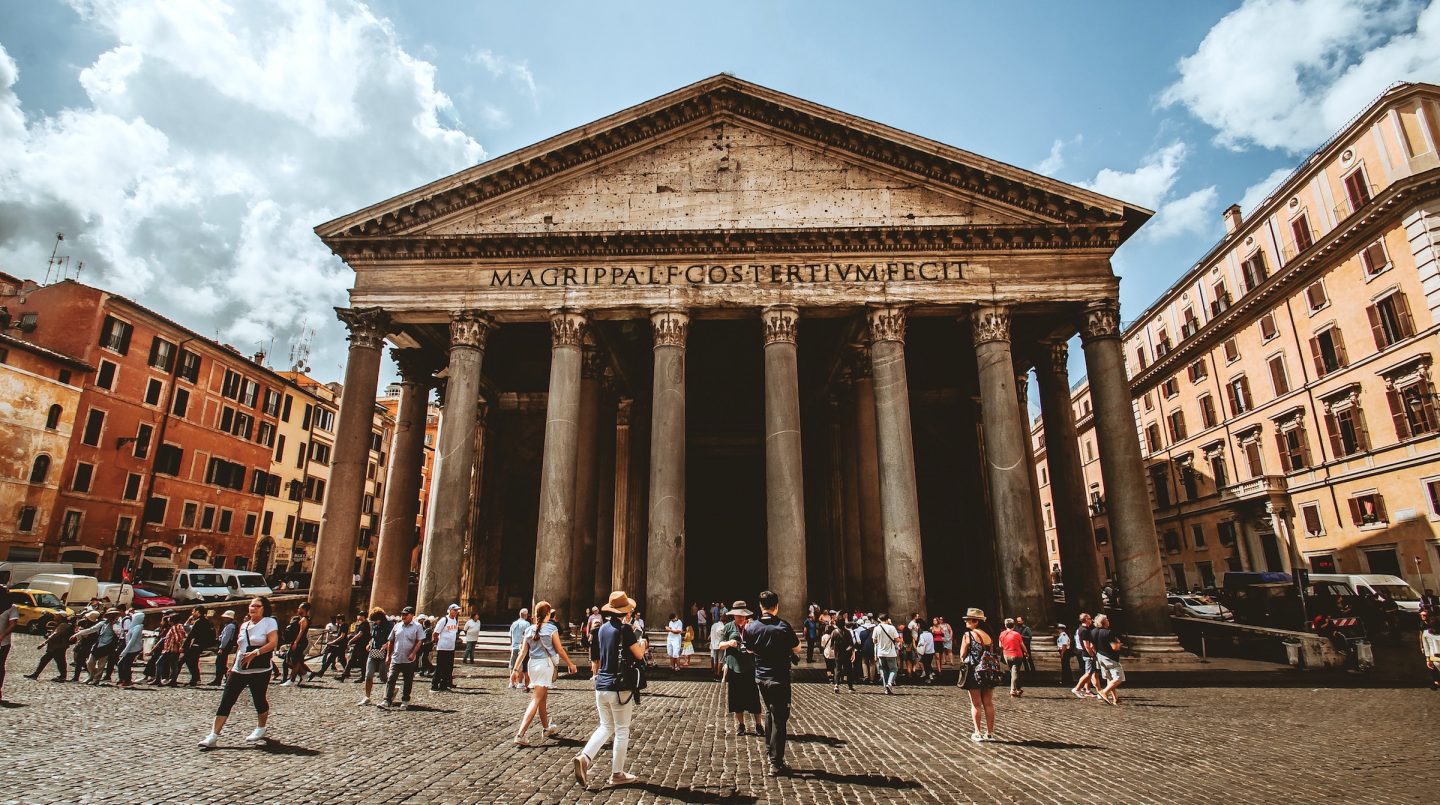How do we deal with the pagan roots of Christmas?
by Tan Huey Ying // December 13, 2018, 5:11 pm

Photo by Anthony Tran on Unsplash.com
Christmas magic.
Relished by most, endured by a select few and scoffed at by cynics.
There are some who say Christmas is a season whose “real meaning” has been hijacked by commercialism with its shiny décor and merry jingles.
A common anti-Christmas argument is the fact that Christmas is a Christian festival with pagan traditions.
As believers who know this to be true, how do we give an answer for the hope we have (1 Peter 3:15) in a festival challenged as pagan at worst, and a mere social construct at best?
Salt&Light spoke with Dr Lai Pak Wah, Vice-Principal of the Bible Graduate School of Theology (BGST), about how believers can understand this season of merry-making as a proclamation of the Truth.
Was Christ born on Christmas?
On December 25, Christians around the world commemorate the birth of Jesus Christ the Messiah, God Incarnate. (Though some cannot.)
Theories abound about how this date came to be – given that the date follows the Gregorian, not Jewish, calendar – and why it was so.
God has invested truths into the world as general revelations.
“Was Christ born on Christmas Day? Nobody knows,” Dr Lai shrugged. “And does it actually matter?”
Informed by his knowledge of church history and theology, Dr Lai explained that our human knowledge of God is separated into two categories: General and special.
“God has invested truths into the world as general revelations” – these aspects of life and culture help us to understand who God is.
In contrast, special revelation is God’s revelation of Himself to Israel in the Person of Christ and in the Old Testament.
Approaching life from that perspective, Dr Lai surmised: “Labelling things as simply ‘Christian’ isn’t very helpful.”
Over the course of the history of the Church, there are multiple examples of non-Christian events, objects and even words that have been re-purposed for the glory of God.
The Pantheon (literally “many gods” in Greek), for example, was once a temple dedicated to Roman gods, but now stands as a Christian church in Italy.
Greek philosophy in Scripture
The apostle Paul quoted from pagan philosophers “ad verbatim!” emphasised Dr Lai. “So when we quote Scripture, like ‘In him, we live and move and have our being’ (Acts 17:28), we are actually quoting pagan philosophers word for word.”
The source may be undeniably non-Christian, but the words Paul used have been put into a new context with its focus on the glory of God.
“When we quote Scripture sometimes we are actually quoting pagan philosophers word for word.”
Giving another example, he said: “Even our use of the word logos involves a degree of hijacking.”
Originally taken to mean the cosmic divine force that ordered the world, the meaning of the word has been transformed over time. It is now perfectly acceptable to speak of God as Logos (John 1:1) without implications of its pagan roots.
Similarly, in the Chinese Bible, Logos is translated into the word 道 (dao), which is traditionally understood by Chinese religions as the spiritual force in the world that governs all the laws of life and nature.

Even buildings have been repurposed: The Pantheon, once a temple dedicated to Roman gods, stands as a Christian church in Italy today. (Photo by Christopher Czermak/Unsplash)
“This view of paganism is a fallacy,” he says. The sacred-secular divide is a boundary often drawn by Christians. It essentially says: “I can only use Christian things for God. Non-Christian things … cannot.
“It’s not so simple as that. So many things in life are not ‘Christian’. One way or another, you get stuck.”
Dr Lai issued this challenge: “What is helpful is to ask, ‘How can Christ and the Gospel bring about a renewal?’”
The redemptive work of Christ
Dr Lai encourages Christians to approach life with that same hope of Christ’s transforming power.
“The sacred-secular divide is a fallacy – what is helpful is to ask: ‘How can the Gospel bring about a renewal?’”
Is it possible that knowing Christ and the transformative power of God is similar to how Aslan, the lion, in CS Lewis’ Narnia books brings statues to life by breathing upon them?
It is the proverbial Midas’ touch that could be considered idolatrous.
“The devil can corrupt,” Dr Lai challenged. “So Christmas can be corrupted. But does that mean we surrender?
“Aren’t we supposed to reclaim it?”
On a practical note, Dr Lai commented that humans are “interesting beings” who need rituals.
“Any event, or tradition, is helpful to the extent that it points forward to some theological truths,” he says.
“The incarnation of Christ is when history intersected with metaphysics and divine truth.”
In recent years, widespread celebration of the season of Advent recognises that sometimes “we just stumble into Christmas, then out of it. And before we know it, it’s over”. There is no reflection, no dwelling upon that mysterious wonder of God becoming flesh. The Advent season thus celebrates the expectant waiting and anticipation of the coming of Christ.
“In some sense, theology hangs in the air. It is metaphysics. It doesn’t cut into history – until the incarnation of Christ.
“That is when history intersected with metaphysics and divine truth.
“He was a remarkable Person who 2,000 years ago did ‘strange’ things and claimed to be God – you cannot dismiss this as myth. So if this is true, then it is amazing news!
“If you take Christmas as the opportunity to proclaim the theological truth that Jesus Christ, Son of God, loved humanity … doesn’t that make Christmas a wonderful event?”
Something worth celebrating
“We are faced with constant corruption in an increasingly darker world. What do we do with these pagan things?” Dr Lai asks rhetorically.
Corruption might not always be as explicit; the real decay could be manifest in discontentment and broken relationships.
“How do we want to present the Gospel and Christianity and what Christ has done – the redemption, His renewal of creation?”
It is a question that the Church has grappled with over the years. The corruption might not always be as explicit as labelling things and events with “capitalism” or “pagan”.
The real decay could be manifest in discontentment, broken relationships or being caught up in the busyness of life.
But Christmas? It is still the season when we can reflect on the mystery of the Incarnation, when God became flesh.
The bottom line? “I think that is something worth celebrating!” Dr Lai says.
We are an independent, non-profit organisation that relies on the generosity of our readers, such as yourself, to continue serving the kingdom. Every dollar donated goes directly back into our editorial coverage.
Would you consider partnering with us in our kingdom work by supporting us financially, either as a one-off donation, or a recurring pledge?
Support Salt&Light


